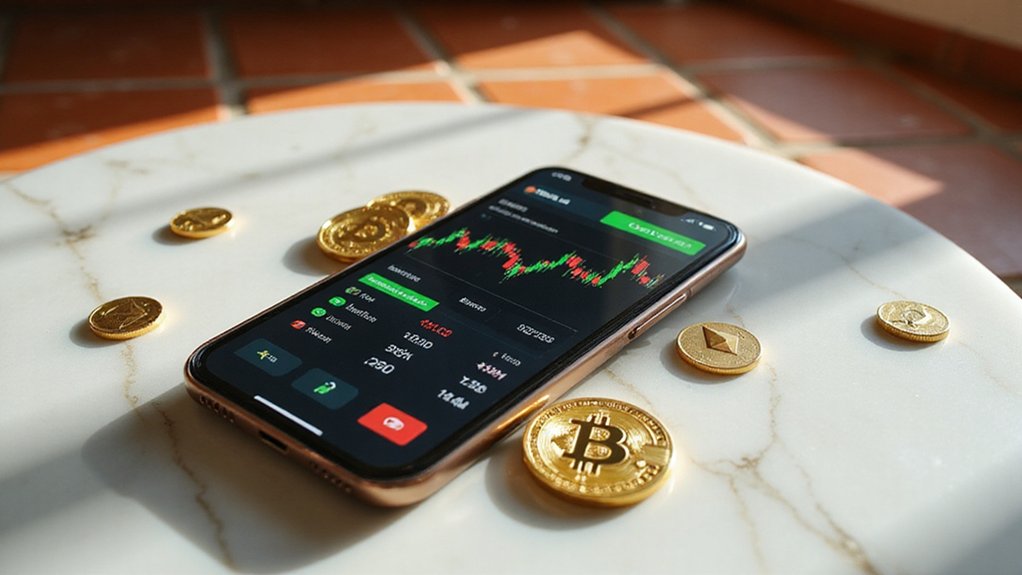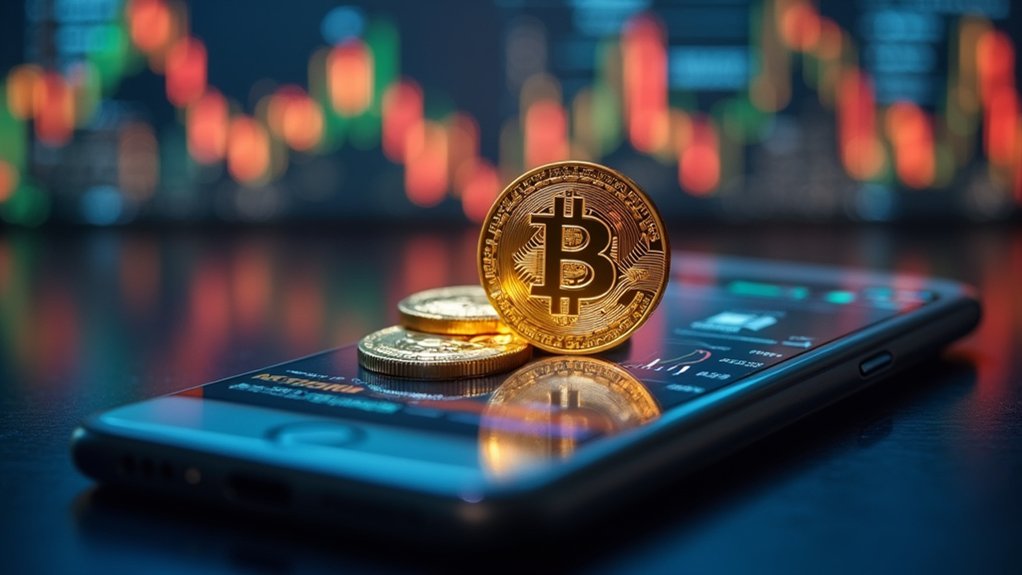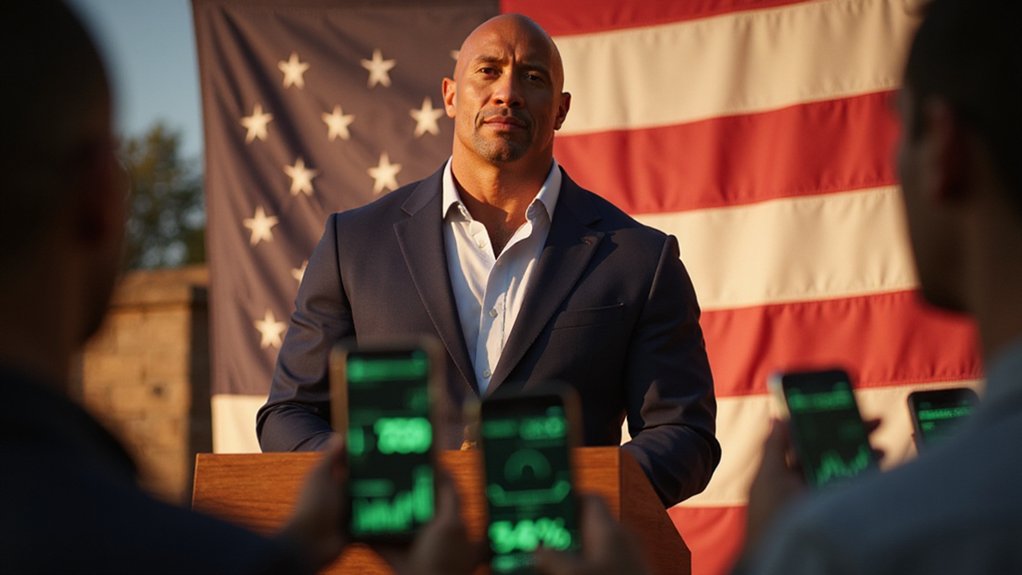BBVA has officially entered the cryptocurrency arena, launching Bitcoin and Ethereum trading and custody services through its mobile application in July 2025—a move that transforms Spain’s second-largest bank into a direct competitor with specialized crypto exchanges while simultaneously legitimizing digital assets for millions of retail customers.
Spain’s banking giant BBVA transforms into crypto competitor, offering Bitcoin and Ethereum services to millions through its mobile app.
The service, which received regulatory blessing from Spain’s National Securities Market Commission (CNMV) in March 2025, allows retail customers of legal age to autonomously buy, sell, and hold cryptocurrencies directly within their existing banking app. This integration represents something of a paradigm shift: customers can now manage their mortgage payments and Bitcoin holdings through the same interface, a juxtaposition that would have seemed absurd just a decade ago.
BBVA’s approach eschews third-party custody arrangements, maintaining full control over digital asset storage—a decision that speaks volumes about the bank’s confidence in its security infrastructure. The platform complies with the European Union’s Markets in Crypto-Assets (MiCA) regulation, providing additional investor protections that many standalone crypto platforms cannot offer.
Perhaps most tellingly, BBVA explicitly states it will not provide investment advisory services for crypto assets, effectively telling customers: “We’ll hold your Bitcoin, but don’t expect us to tell you when to buy it.” This hands-off approach reflects the bank’s careful navigation of regulatory requirements while acknowledging the speculative nature of digital assets.
The strategic implications extend beyond simple service expansion. BBVA positions itself competitively within Europe’s evolving crypto landscape, joining other major financial institutions racing to capture market share in digital asset services. This initiative builds upon BBVA’s earlier success launching Bitcoin custody services for private banking clients in Switzerland during June 2021. The bank joins a growing industry trend that includes JPMorgan Chase and Standard Chartered implementing similar digital asset offerings. Future plans include adding new cryptocurrencies, stablecoins, and tokenized real-world assets—suggesting this launch represents merely the opening salvo in a broader digital transformation.
The timing aligns perfectly with the EU’s regulatory push for crypto asset services, as traditional banks leverage their established infrastructure and regulatory relationships to challenge fintech disruptors. For Spanish retail customers, this development offers an intriguing proposition: the security and familiarity of traditional banking combined with access to an asset class that has historically existed on the financial system’s periphery. Unlike traditional centralized exchanges, BBVA’s approach integrates cryptocurrency services directly into conventional banking infrastructure, potentially offering enhanced security and regulatory compliance.









